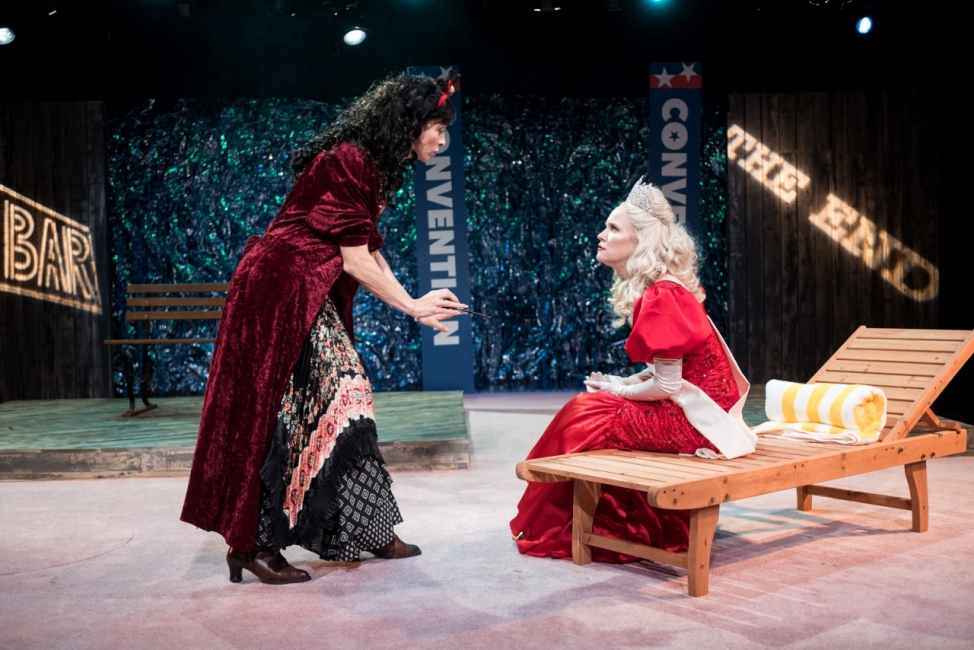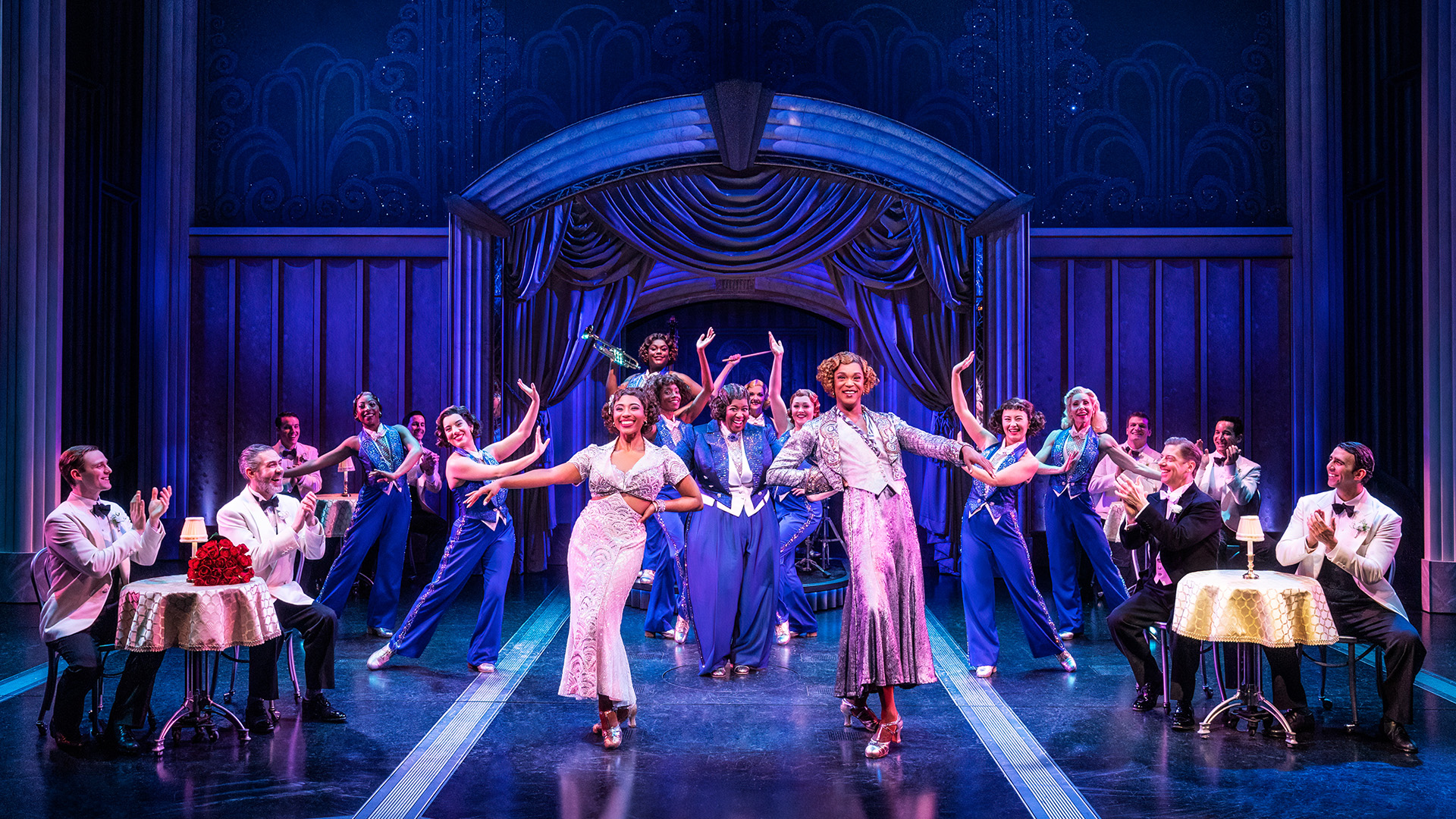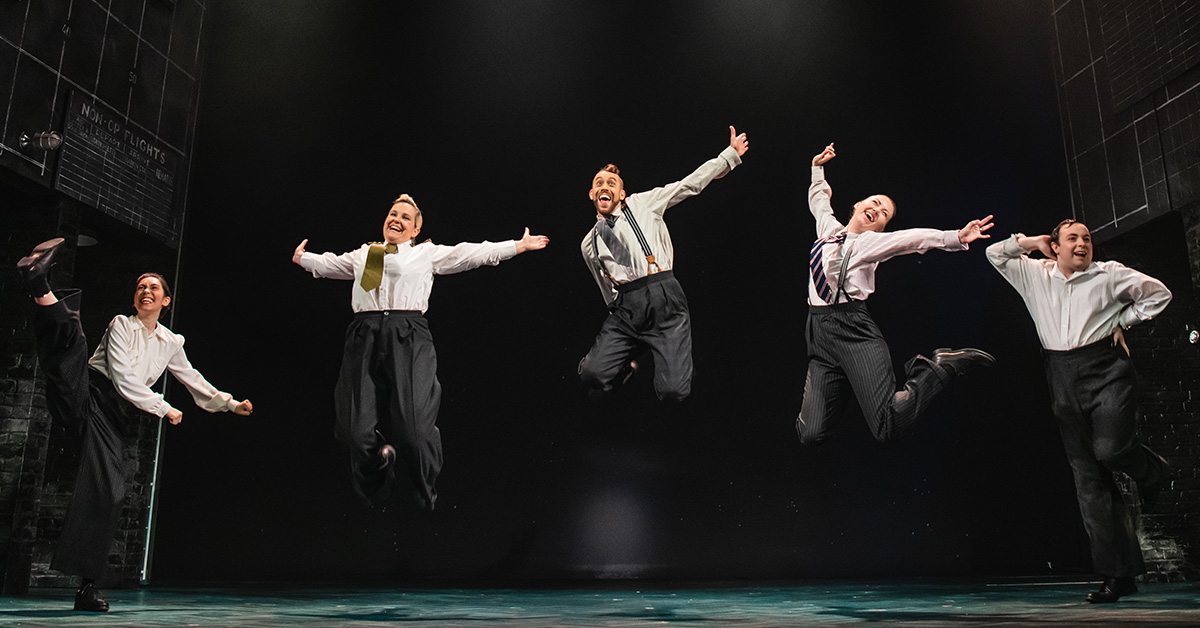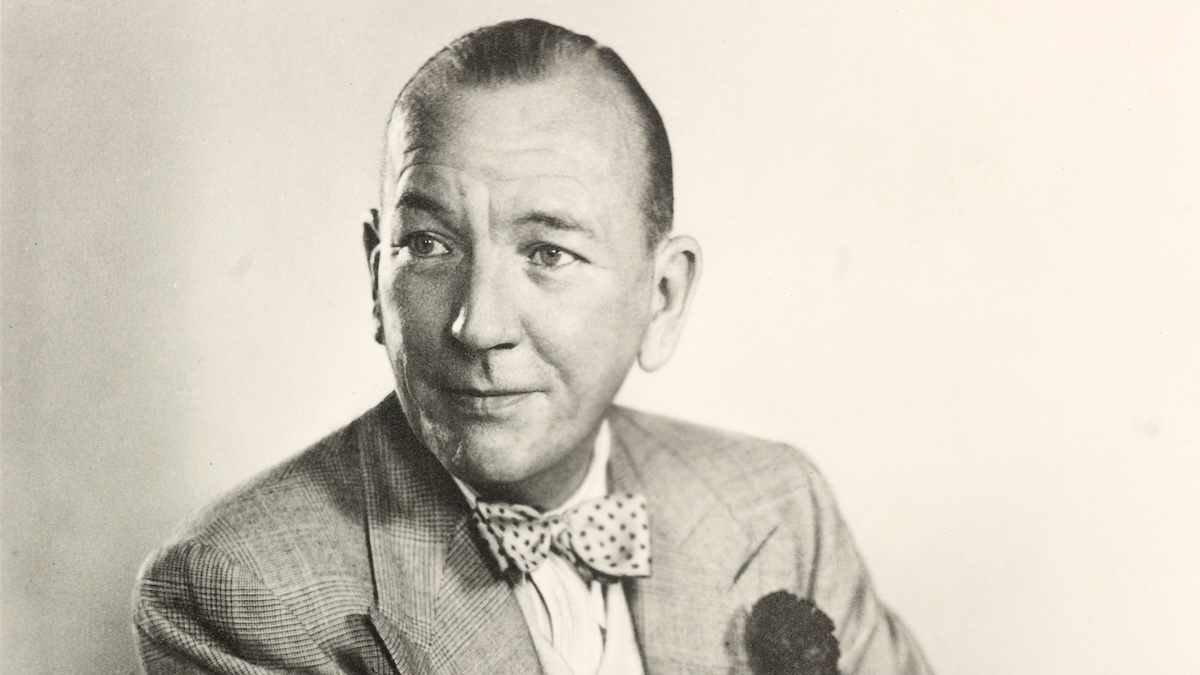
When I re-read Thornton Wilder’s amazing play while preparing for one of Remy Bumppo’s adult-education classes about three years ago, I couldn’t believe how the ideas sprang off the page, both as playfully meta-theatrical and as urgently relevant and contemporary. Reading the play amidst a group of American political plays from the 1930s and 40s, Wilder’s tragicomedy felt so groundbreaking and engaged, much younger and sprightlier than its 75 years.
When I then shared the text with other company members, contemporary issues of American consumerism, approaching environmental disaster, refugee crises, and fears of being swept up in nationalistic or political doublespeak all seemed to cry out to us for an immediate revival in 2017—especially in our current cultural context, in this crazy, chaotic, buzz-saw-of-a-newsfeed year. Wilder himself said that the play, written as America was being drawn into WWII, “mostly comes alive under conditions of crisis” and I think many would agree that is exactly where we find ourselves, as we trudge through dire daily headlines, endless partisan-inflected news, and terrifying warnings of impending global destruction, man-made and natural.
However, when I scheduled the production to open Remy Bumppo’s 21st season, we could have had no idea how truly timely our production would be. We were thrilled to go into rehearsal this September, knowing that the play would be celebrating the 75th anniversary of the Broadway opening during our run and that there were so many topical subjects for conversation around the production. Krissy Vanderwarker, the production’s director, had decided to move the play historically forward in each act. In Act One, we were in a bizarre 1950s “Father Knows Best meets the Flintstones” early sit-com world, which was then invaded by refugees drawn from our current newsfeed. Act Two felt like a blend of 1980s Reagan-era “Family Values” politics with a G.W. Bush or Trump-ian call for consumerism to solve -or to deflect from—our larger problems: “Enjoy Yourselves!” But then came hurricane season and the devastating news and images coming from first Houston, then Florida, and then Puerto Rico, not to mention other countries around the world dealing with mudslides and earthquakes. The political circus of Wilder’s Act Two, with its satire of capitalism, media and solipsistic shortsightedness, and the Antrobuses’ failing marriage and family squabbles, paled in startling comparison to the intrusive buzz of public weather warnings and the appropriately color-coded projected titles of disaster, which shone through the theatrical fog to bring the outside world shockingly into the moment and onto the stage. Political posturing was thrown into perspective by the power of nature.
And then, less than one week later, on October 1st, the Las Vegas shooting added another level of traumatic echo. Both of these events happened literally during our tech week. Krissy had felt that Act Three should be placed slightly in the future, after a global war had scorched the earth, especially in the shadow of current news coming from North Korea and from the violence at recent far right rallies here in the US. Thus Henry, a young white male in our production, enters the carpeted stage in digital fatigues carrying a duffle bag full of weaponry, including a pile of semi-automatic weapons. Suddenly, the random violence of the foreseeable future had come home—and the present horror of homegrown terror became all the more real.
And then, just to cap off the constant re-thinking process of producing this play in the theatre, our Gladys broke her foot on stage during final dress—without really noticing until 4am the next morning. She simply stepped wrong. The result was we had to cancel the first preview and organize a put-in for her understudy—actually, something of a blessing because we had run out of tech time the previous weekend because the Act Two storm was something of a beast, and the new adjustments made in Act Three, both in acting and design, had not seen a full run.
And dramatic turns of events did not stop there. During our penultimate Sunday matinee, our wonderful Stage Manager Tess Golden (the actual SM, not the actor playing Fitzpatrick) very calmly declared that her contractions had sped up and she needed to leave for the hospital to give birth. Tess was due after we close next week, and was sizeably pregnant for much of the run. Fortunately, plans were already afoot, so the SM from the next show left those rehearsals early to take over very smoothly from Tess’ exact book, and the audience would never have known. Tess shared the news with the cast during second intermission, and then hopped in a cab to the hospital. In a wonderful way, this complication seemed strangely fitting to the play—and, when Gladys appeared with her baby shortly after, only added to the cast’s emotional investment in the survival story and rebirth of Act Three.
Despite all this, or perhaps because of it—and this seems a crucial element in Wilder’s optimistic view of humanity—there is a consistent seam of hopefulness woven throughout his writing, and it was this hopefulness that not only persuaded us originally to stage the play during these dark times, but which now in production became emotionally and crucially powerful for the battle-scarred survivors of the play’s Act Three and the actors performing those roles. Suddenly, there was an emotional breakthrough as Sabina and the Antrobuses understand their roles and choose to struggle on again. Furthermore, it offered a useful reminder that producing plays as complex and demanding, and rewarding as this, will always involve surviving…well, by the skin of our teeth. We need to focus on the elements we can control and learn to edit and improvise for the rest.
The wisdom of Wilder and of this play re-echoes. We will always make mistakes, as humans and as theatre practitioners. We will always fail to reach our potential. We will always be ambushed by the unpredictability of everyday life and of history. But, that very unpredictability is what makes life and live performance uniquely exciting. And as long as we have cultural memories, through art, philosophy, sociology, history itself, through the “books” of the play in other words, through “the memory of our mistakes,” we will hopefully continue to learn. We will continue to gain perspective, to see the world in more detail and with more compassion, and to move ourselves forward, even if only by the smallest increments and through every creative act.
Remy Bumppo has been honored to open this show within a month of the original Broadway production 75 years on. Here’s to the humor, humility, and hope that is the key to the survival of our humanity–and of us, as theatre practitioners. As George Antrobus says, we know that “every good and excellent thing in the world stands moment by moment on the razor-edge of danger and must be fought for.” And producing the wonderful complexities of The Skin Of Our Teeth for a new audience exemplifies the value of art in that struggle. Sometimes we lose sight of why theatre and the arts are so important. “Save the human race!”
This article is part of our The Skin of Our Teeth series, a play written by Thornton Wilder.
To purchase a copy of The Skin of Our Teeth, click here, and to learn more about licensing a production, click here.

The Latest from @ConcordShows: Spring ’24

The Latest from @ConcordUKShows: Spring ’24

